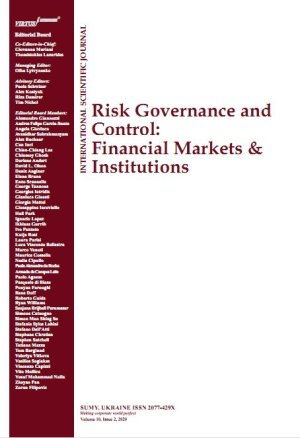
VARIABLES INFLUENCING THE USE OF DERIVATIVES IN SOUTH AFRICA – THE DEVELOPMENT OF A CONCEPTUAL MODEL
Download This Article
This work is licensed under a Creative Commons Attribution-NonCommercial 4.0 International License.
Abstract
This paper, which is the first in a two-part series, sets out the development of a conceptual model on the variables influencing investors’ decisions to use derivatives in their portfolios. Investor-specific variables include: the investor’s needs, goals and return expectations, the investor’s knowledge of financial markets, familiarity with different asset classes including derivative instruments, and the investor’s level of wealth and level of risk tolerance. Market-specific variables include: the level of volatility, standardisation, regulation and liquidity in a market, the level of information available on derivatives, the transparency of price determination, taxes, brokerage costs and product availability.
Keywords: Variables, Instruments, Crisis, Conceptual Model, South Africa, Stock Exchange, Financial Markets, Investor, Volatility, Availability, Wealth
How to cite this paper: Schwegler, S., & Viviers, S. (2011). Variables influencing the use of derivatives in South Africa – the development of a conceptual model. Risk Governance and Control: Financial Markets & Institutions, 1(1), 52-67. https://doi.org/10.22495/rgcv1i1art4



















